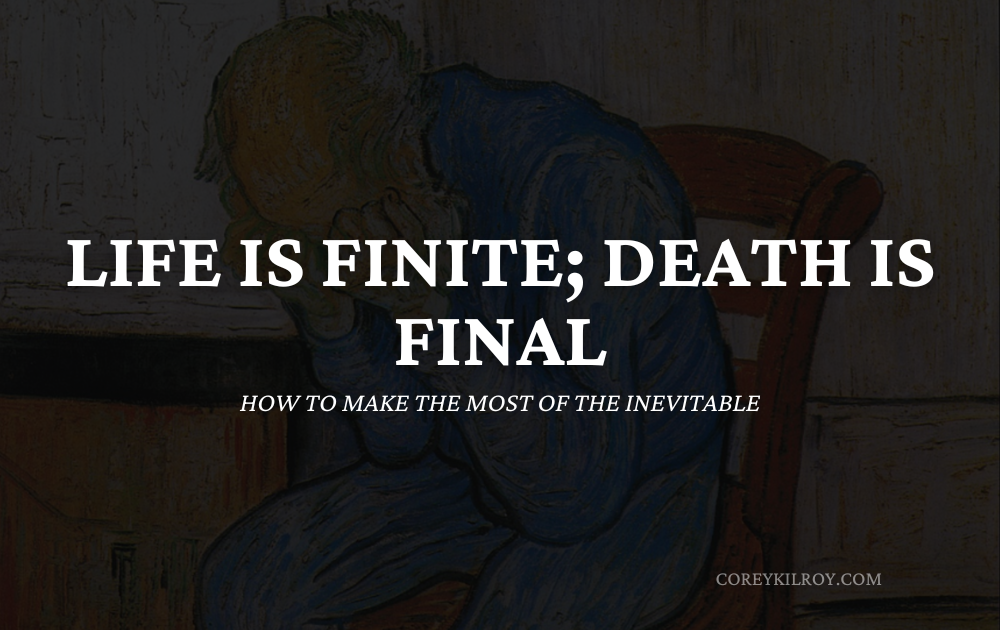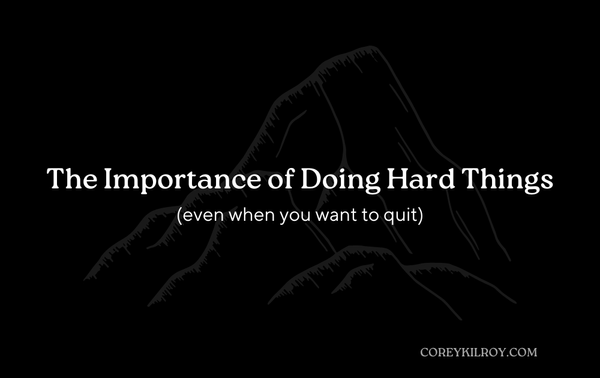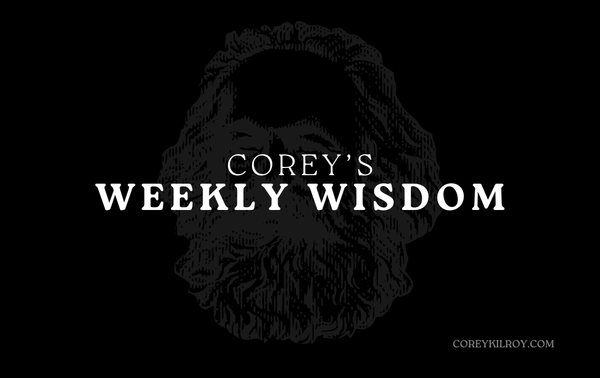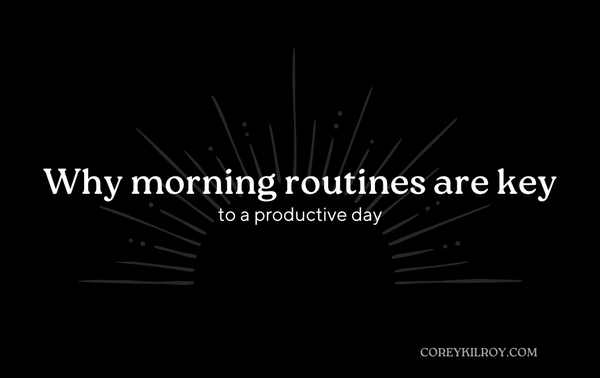Life is Finite; Death is Final. So What Else?
How to make the most of the inevitable.

My girlfriend recently lost a close family member. She was the matriarch of the family and over the past 4 years, I’ve grown very close with this family member as well.
So it’s safe to say that we’re all grieving her loss greatly.
Because of this life event, it's made me think about my own mortality.
I remind myself how brief our life is and how unpromised our tomorrows are.
As if the universe has answered my current thoughts, I stumbled upon a gentleman’s article that I’m going to summarize here.
His article offered a quote by the great philosopher, Marcus Aurelius. It’s an excerpt from St. Robert Southwell’s, Upon the Image of Death, published in 1595–the year of his death coincidentally.

It reads:
“Though all the East did quake to hear
Of Alexander’s dreadful name,
And all the West did likewise fear
To hear of Julius Cæsar’s fame,
Yet both by death in dust now lie;
Who then can ‘scape but he must die?”
Even a great philosopher such as Marcus Aurelius preaches the fact that we’re all destined to be buried in the same “dust”.
We're all met with the same fate at the end of life.
It’s the end that all of us must come to an agreement with.
And who can truly know whether our mortality is humanity’s worst curse, or our greatest blessing?
I think that’s a question that’s better left unanswered…
But what about immortality through our work?
Additionally, many people in the world work (and hope) for fame that’s longer lasting than our physical lives.
Working to accomplish great deeds and achievements that may establish for us an indirect immortality we will probably never know about after we leave this world.
Take Thomas Edison, he was a great American inventor and businessman who died in 1931.

But because he worked tirelessly to create devices in fields such as electric power generation, mass communication, sound recording, and motion pictures, he will always be remembered as the man that created the lightbulb (and the phonograph, and the motion picture camera).
His legacy has been–and will forever–be remembered by humanity for the rest of time.
And, what if we do achieve this vicarious immortality? Having gone beyond this life on earth, will we even care? I mean, we’ll be dead anyway?
And yes, you may create something that positively impacts humankind, just as Edison did, but those are true outliers.
Plus, it’s not like Edison can see how far his inventions have become.
His one lightbulb has evolved into inventions of such great magnitude. For example, there's 161 megawatts of electricity in Time Square alone. That’s enough power to light up 160,000 homes!
I digress...
The main message
The point here is that there is only one certainty in our lives…
What we have is today.
What we have are our duties, our responsibilities and obligations in life.
And, if we’re lucky, we also have the comforts that life can bless us with while we’re here – loved ones, family, friends, and acquaintances.
All the relationships that bring so much more meaning to our lives than we can possibly have without them.
So my message for not only you, the reader, but for myself and loved ones around me as well, is to not put fear in death.
Nor in striving for an immortality of legacy that’s, at best, uncertain.
We should instead foster the time we have before us today, fulfill our duties, love and cherish our family and friends, and act on what small good we find ourselves in a position to do for others… every day.
Then maybe, just maybe, that immortality may show itself in the future.
I talk about ways to live in the present moment in my essay here.
Vincent Van Gogh is considered one of the greatest artists of all time. His paintings create a legacy that is immortal, yet he died before he knew about his fame.

And realistically, it all doesn't matter in my opinion. Van Gogh suffered immense mental issues throughout his life.
He suffered in his day-to-day life just so we could reap the benefits of his work at a later date?
I don't think that's a fair trade.
We need to be grateful for what we have today and make the best of it. Living each day as if it's our last.
Be genuinely happy for others and interested in what they have to say.
Additionally, our self love is just as important here.
We must treat ourselves as the finite, mortal, fault-filled beings that we are, just like all our fellow humans.
And we must act rigorously, in that we demand of ourselves that we do our best, and that we strive to make that best better.
For, in the end, we will all rest, together, in the common clay of our spinning planet.
And, if we have done our best, we may hope that rest is a peaceful one.
In the end…
Let me pose a couple questions for you to ponder:
1. What does death bring to your mind?
2. What are you inspired to do, to change, in your own life?
Be well and enjoy today.
Keep Pluggin.
-C.



